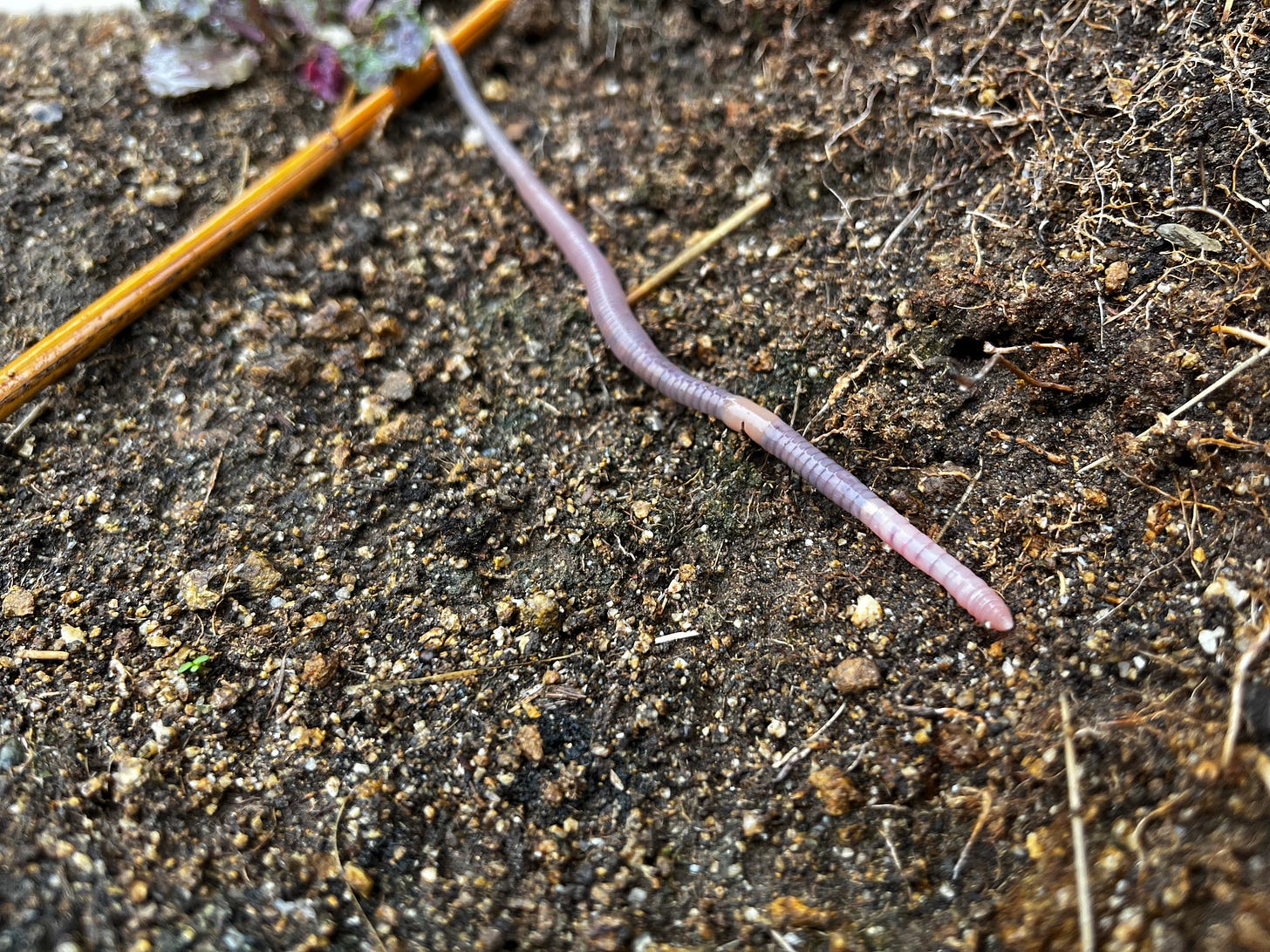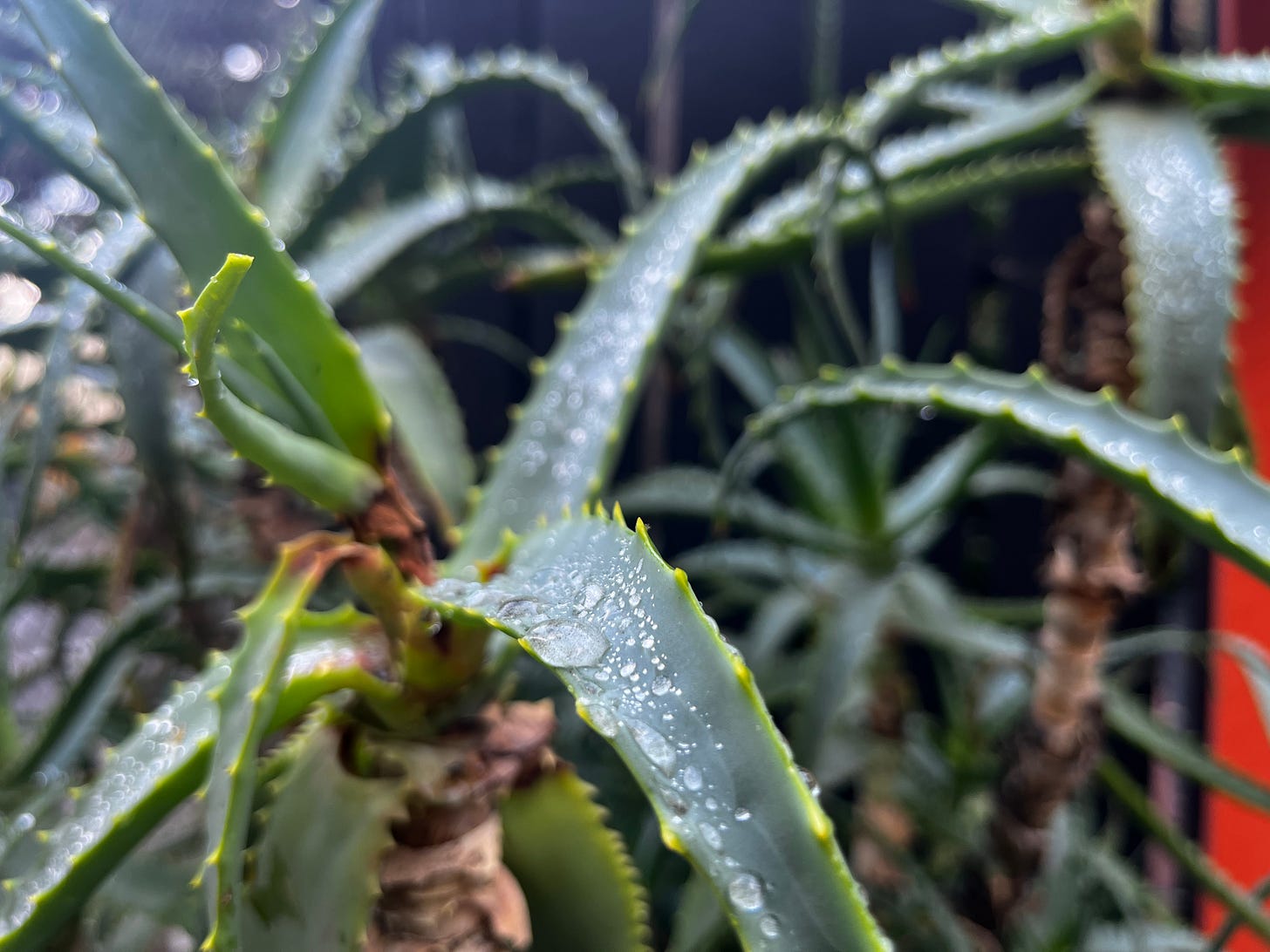Meeting the Moment With the Rest of Nature
Together, you and me, animals of the human variety, are part of a living ecology and world, arriving and moving through a seasonal cyclical transition.
These first words are coming as Moon is in its First Quarter phase. Moon is three quarters of their way towards welcoming the full light of Sun on their cold, calm surface. Half of this spherical orbital being faces towards us here, we who collectively are a part of this symbiotic living wonder of a world. We regularly see these phases of light and experience cycles of tidal energy play out continuously. Moon meanwhile does receive and experience the light and warmth of our central Solar companion upon the half of their being that we can not see from here. Moon and Earth are entwined in a synchronous rotational dance. This means that when we here observe a new Moon, the opposite side of Moon is fully receiving the light of Sun. And likewise, when Moon is full for us here, this lunar being then properly experiences a ‘dark side’. This is fascinating to comprehend.
Much like these phases of Moon and its relationship with the light of Sun, another intriguing dualistic dynamic plays out here on this watery world of life. Solstice will be here when this is published, this first portion of words are presently being written with the Rain, Ravens, Owls, and many more-than-human companions of this canyon two days prior. Also accompanying the manifestation of this writing are bundles of Rosemary, Sage, and Lavender who have been introduced to Fire and are pleasantly providing a smoke I welcome with gratitude and reverence. A variety of jazz music is also filling the surrounding space, compliments of KMHD, which is streaming live here from up in the Pacific Northwest, in the Cascadia Bioregion. KMHD’s tag line is awesome. ‘Jazz Without Boundaries”.
But I digress. Solstice was the moment we are now meeting together.
For those of us here in the Northern Hemisphere, Solstice is where the darkest of nights can be found. While in the Southern Hemisphere, an abundance of radiance is being experienced. And we, along with the rest of nature, find our collective selves with energies that greatly, although often subtly, influence how we navigate our intertwining and entangled journeys. What is perhaps most perplexing to reflect on presently is that humanity - especially here in the Northern Hemisphere, where the majority of our species subscribes to the trappings of modernity and the dominant social, economic and political paradigms - are largely caught up in frantic, hectic, consumeristic chaos. Almost entirely detached from the rhythms and rhymes the rest of nature is navigating through - and with - in this quarterly cycle of our collective spin around Sun.
To be fair though, we born into these modern mythologies have come by this honestly.
So many of us are generations removed from holistic, simple ways of communing, and celebrating the ceremonies of these seasonal and cyclical transitions. Most of these events are marked as significant days (holidays) in our calendars, and they often hold some essence of wholesome rituals and traditions, but so often they also come with excessive consumption, and transactional obligations. What is largely missing are meaningful exchanges based and centered around care, connection, companionship, love, gratitude, joy, and celebration of the rich relationships that we are all a part of.
Solstice is upon us. For half the global beings it is a transitory moment ripe for pausing, stillness, and reflection. For the other half, embracing the aliveness, abundance, and fertile energies that are activated around you.
These are cyclical opportunities to reflect and appreciate how you are embedded in, entangled with, and embodying living relationships, inside and out. This is what so many of us are yearning to regularly remember and re-integrate with. Yearning to detangle from the detrimental madness of modernity and get back to being mindfully, lovingly, and intimately woven together with the rest of nature. In an ongoing state of becoming relational beings.
A state of relationality and remembrance.
Remembering that you belong.
Remembering that you are nature, too.
What is perhaps most encouraging about this notion and process of being present, meeting the moment with the rest of nature, intertwining in an on-going state of becoming relational beings, is that this is actually the base level of your existence.
You’re already there, and you always have been.
You come from ancestors who engaged with their shared ecology in this way. We all have. It’s in your DNA (just like the Stars are). You have a taproot, invisible to the naked eye (though visible to the third), that transcends space and time and connects you directly with source. We all do. You are sacred. Divine. You are profane. Messy. We all are.
What a gift and blessing it is to be Nature together.
And as a part of nature, we have a regular opportunity to embrace the complexity of labels such as ‘we’ or ‘you’, ‘me’, or ‘I’. To surrender to this dance between these identities, fluidly, to the best of our abilities. This may be one of the most challenging aspects, or concepts, of how to better navigate reality in a relational way.
A regular question to ask yourself is, what is the context of your we?
We, specifically we humans, are never alone, never isolated, or diconnected from the rest of nature and this living world. It’s impossible. We are always and in all ways a part of nature. We’re comprised of countless living beings. A human is a symbiotic animal, utterly dependent upon all the other living beings that make up our physical composition. We also crucially require essentially all the incredible lifeforms and the greater meshwork of elements and minerals that make up this living world to just be able to breathe. We are intertwined relations, mutually nourished and sustained bodies of ecologies. It’s pretty bonkers to try and comprehend this all sometimes.
Something might be niggling at the back of your thoughts at this point. Particularly around how some of the flow of this writing is, how to put it, clunky, or jarring in some ways, specifically around the language and way with which beings of the non-human variety are described and referred to. This is largely due to the English language having catastrophically little ability to provide you and I with the contextual framework for talking about, or relating with, the myriad living beings and people who are not humans. We lack good variety and flexibility for how to simply and succinctly articulate the sensorial agency and identity of these beings. This would help tremendously to better acknowledge their aliveness, and their personhood. This is a big part of the task at hand, to narrate and navigate reality from a relational world/cosmic view and life-way, where the animacy and vitality of this living world can be simply and clearly defined.
Those of us who do not directly descend from indigenous lineages and cultures, who do not possess a first language that is embedded with animacy makes this all difficult to be sure. I love Robin Wall Kimmerer’s wonderful suggestions and provocations to try Ki, as a plural form of Kin, that can be used to describe our non human relations. I’ve played with this language in journaling and other writings but have only used it in limited capacities publicly. Kin is a relatively universally recognized word so Ki could indeed be a good way to shift our grammar when it comes to how we speak and write about our fellow more-than-human relations. But the challenge of meeting modernity and the popular cultural consciousness with lingo like this could prove challenging.

Alas, we must work with what we’ve got and here and there tinker with turns of phrase or altogether new forms of words in order to qualify writing and speaking about, and with our multi-species communities while giving them the reverence and respect they deserve. Illuminating the aliveness of the world. Interestingly, to use the pronouns they/them/their is useful and makes some sense. We humans have integrated these pronouns more into our lexicon in regards to gender identity, and it seems valuable for the context of more-than-human beings as well. These living beings may also have masculine or feminine identities, but they most certainly deserve to not simply be referred to just as an ‘it’.
So up above when discussing Moon, there was a concerted effort to not describe them as it. Oh there it happened without me even realizing it. I used ‘them’ to describe Moon instead of it. But Moon most certainly is Ki, too. Moon is Earth’s kin after all. This takes effort and doesn’t necessarily register well with the flow of a modern traditional sentence structure, where we’re inherently and casually objectifying any being that isn’t a human. Though if we allow for our language to provide personhood to more-than-human beings it seems beneficial on so many levels. This is no small task. We’ve got a long way to go with this. There are of course a great number of cultures and customs, languages and life ways that see the animacy of the world, and have always spoken, or written about their multi-species ecological communities, identifying everyone as people. This is what we all have to make our way back to. Post haste.
When this entry began, it didn’t have a direction or particular intention. And now, as we find our way towards a wrap up and conclusion, the invitation is to allow for these words, written through an interwoven tandem of entangled lifeforms, to sink in and settle wherever they may. This all might resonate deeply. Or sound like a bunch of nonsensical gobbledygook. Maybe it’s a combination of the two. It just depends on what lens you’re looking through.
It could benefit from some more cleaning up and review perhaps, but there was care and consideration in the co-creative process here so gratitude to you for taking a nice deep breath at this point and just embracing the is-ness of this business.
Sending solstice love to all beings of this living world. And wishing for us human lot to humble down, de-center ourselves, and move our way through the grief, trauma, and all the unpleasant parts of what our human species has collectively done to our shared ecologies up to this place in space, on this seemingly never-ending journey of reality.
Here’s to more holistic, relational, regenerative, inclusive multi-species exchanges, celebrations, rituals, living, learning, remembering, and be-ing. And cheers to more inclusive and animate narratives and stories where all our fellow kin and ki are better represented and respected, to wondering and wandering together with care, respect, love, compassion, kindness, forgiveness, and a willingness to admit that when it comes right down to it, not a one of us knows what the hell is going on here.
So let us play nice together and do the best we can.
Doesn’t that sound nice?




